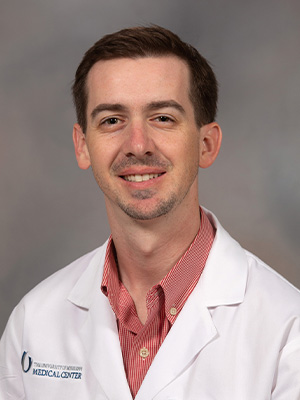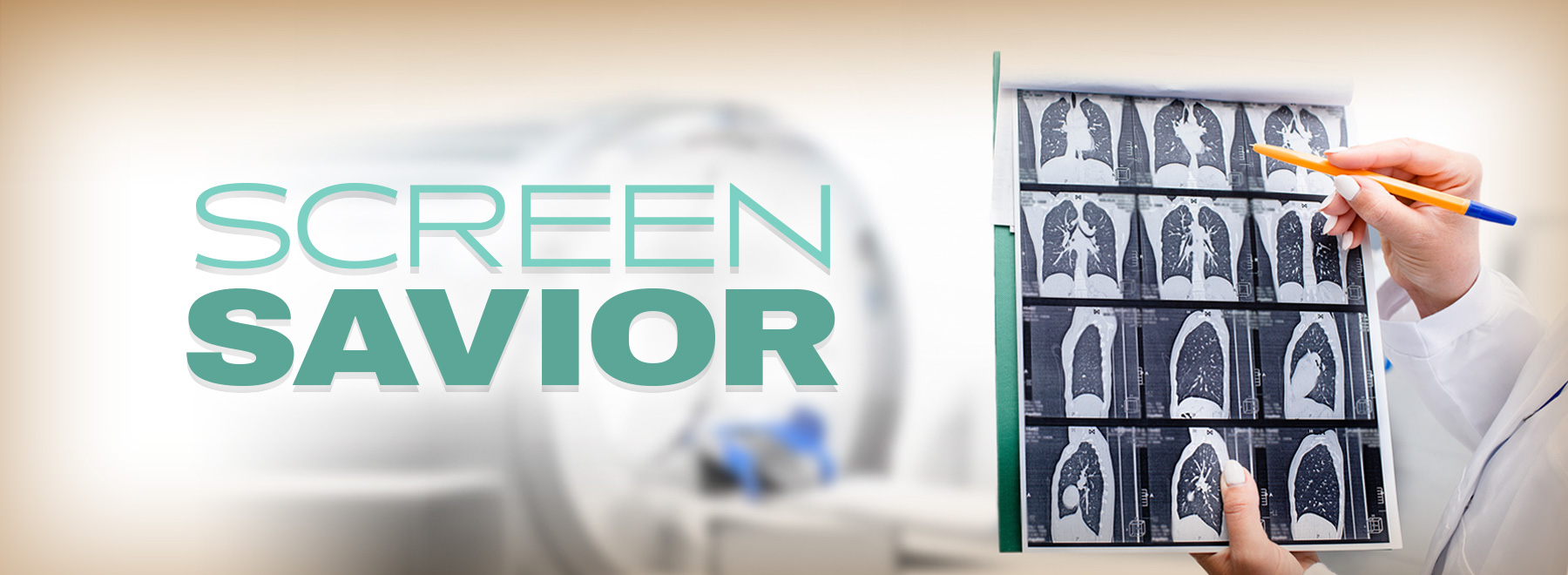Timely lung cancer screening is key
It’s having termites in your lungs.
Lung cancer can inflict impressive damage before you know it’s there. Its signs are difficult to spot at first; it works silently, has a boundless appetite for destruction and, for many potential victims, requires diligence to fend it off.
One way to help fend off the number one cancer killer of adults in the U.S. is to get screened for the disease; and, yet, the screening rates for this scourge are low, especially for those who need it most, and more so for those who live in Mississippi.
“We’re screening only 5 to 10 percent of eligible patients. That is a huge missed opportunity for us,” said Dr. Pierre de Delva, professor of surgery-cardiothoracic and director of the Cancer Center and Research Institute’s thoracic cancer program at the University of Mississippi Medical Center.
“Every year, we could be saving many more lives.”
The five-year survival rate for lung cancer in Mississippi is 21.4 percent, compared to 26.6 percent for the nation and 33.3 percent – the greatest – for Rhode Island, the American Lung Association reports.
“More people die from lung cancer in Mississippi than in many other places,” de Delva said.
News of the anemic screening rates comes from a study led by the American Cancer Society, which reported in June that less than 20 percent of eligible individuals in the U.S. were up-to-date with recommended checks.

Eligible individuals, according to the U.S. Preventive Services Task Force, an independent, panel of volunteer experts, are those considered high-risk, said Dr. Jonathan Hontzas, a Doctor of Nursing Practice and the director of the UMMC ACT Center and Lung Cancer Screening Services.
“Those are people who are 50-80 years old who are currently smoking or quit less than 15 years ago and whose smoking history is at least a 20-pack year [a pack a day for the last 20 years, or two packs a day for the last 10 years].”
De Delva and other experts believe the 15-year smoking-history cutoff for the high-risk group leaves out too many people who would also benefit from early detection measures. Consider, for instance, Mississippi’s smoking rate: 19.6 percent, compared to only 13.5 percent for the rest of the country, reports the American Lung Association.
Most insurance, including Medicaid, will cover an initial lung screening, de Delva said. “But if that reveals possible signs of cancer, there is a need for further tests, and for that, insurance will cover only the high-risk group.
“If you’re not in that group, you must pay the deductibles. And, for some people, that can be a barrier. For now, we’re doing, for instance, biopsies only for the cases that are considered high-risk.
“But we are finding some people who have cancer who don’t fall under the more restrictive guidelines. The risk for lung cancer, even after smoking cessation, never goes back to zero. We believe it’s important to have the option for screening in that case.”
Minimizing financial responsibility is key, especially in Mississippi, de Delva said. “So, then, there can be a follow-up test that is not a challenge for patients to be able to afford.”
Such an initiative is in the works, he said, but, in the meantime, he urges everyone to remember this: “Anyone with lungs can get lung cancer. Even people who don’t smoke.”
Even people who vape instead, de Delva said. “So many kids are vaping now. They are introducing themselves to a high level of carcinogens from the combusting chemicals. They are exposing themselves to the risk of cancer for the rest of their lives. Monitoring vaping use in children is very important.
“But its’s non-smoking women who now make up the fastest-growing group of non-smoking patients who are getting lung cancer. For some reason, that group is increasing.”
Other risks include having emphysema or other lung disease, a family history of lung cancer, exposure to radon gas and coming in contact with certain chemicals.
“Some areas of Mississippi have particularly high cancer rates, and we believe the cause may be environmental,” de Delva said.
Of course, cigarette smoking is the number one risk factor for lung cancer in the U.S. “If you currently use tobacco, the single most important thing to do to improve your overall health and decrease your risk of lung cancer, heart disease and other illnesses is to quit smoking,” de Delva said.
The Medical Center’s lung cancer screening program works “hand-in-hand with the cessation program of the ACT Center,” Hontzas said.
“Lung cancer screening has been shown to decrease lung cancer mortality by around 20 percent,” he said, referring to findings from the National Lung Screening Trial.
“Typically, by the time you have symptoms, the cancer has progressed. As with any other cancer, you want to find it before symptoms present or it will be more difficult to cure.”
When caught early, “the chances are good that you will be able to cure it in a straightforward fashion,” de Delva said.
The initial screening is a low-dose CT scan of the chest, Hontzas said. “If there is a red flag on this initial screening, then we would choose between a multitude of options including merely repeating imaging three to six months, obtaining a PET scan or obtaining a biopsy.”
Screenings are offered at any UMMC CT location, including University Hospital, UMMC Grants Ferry in Flowood, CCRI at the Jackson Medical Mall, UMMC Holmes County in Lexington and UMMC Grenada. UMMC Telehealth is also an option.
“In 2018, our lung cancer screening program tested 315 people; last year it was 1,650,” Hontzas said. “We should surpass that number this year.
“If you’re high-risk or think you might qualify, call 601-984-LUNG, and we’ll be happy to tell you. If you quality for the guidelines, insurance will pay for everything for the initial screening; there’s no copay.”
The above article appears in CONSULT, UMMC’s monthly e-newsletter sharing news about cutting-edge clinical and health science education advances and innovative biomedical research at the Medical Center and giving you tips and suggestions on how you and the people you love can live a healthier life. Click here and enter your email address to receive CONSULT free of charge. You may cancel at any time.



